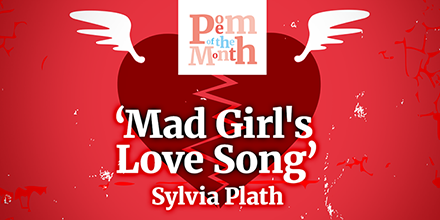This is a word we use to plug
Margaret Atwood, True Stories, 1981
holes with. It’s the right size for those warm
blanks in speech, for those red heart-
shaped vacancies on the page that look nothing
like real hearts. Add lace
and you can sell
it. We insert it also in the one empty
space on the printed form
that comes with no instructions. There are whole
magazines with not much in them
but the word love, you can
rub it all over your body and you
can cook with it too. How do we know
it isn’t what goes on at the cool
debaucheries of slugs under damp
pieces of cardboard? As for the weed-
seedlings nosing their tough snouts up
among the lettuces, they shout it.
Love! Love! sing the soldiers, raising
their glittering knives in salute.
Then there’s the two
of us. This word
is far too short for us, it has only
four letters, too sparse
to fill those deep bare
vacuums between the stars
that press on us with their deafness.
It’s not love we don’t wish
to fall into, but that fear.
this word is not enough but it will
have to do. It’s a single
vowel in this metallic
silence, a mouth that says
O again and again in wonder
and pain, a breath, a finger
grip on a cliffside. You can
hold on or let go.

The depths of Atwood
Margaret Atwood is a Canadian writer with a huge back catalogue of published work across different styles and genres. From bestselling novels including The Handmaid’s Tale to poetry collections, children’s books, and even graphic novels. Atwood has won many prestigious awards which include the joint winner of the Booker Prize 2019 with her book The Testaments. Several of her works have been adapted for TV and film and she continues to be a pioneer in her field.
Atwood’s writing explores a range of themes from political power to identity, myth and legend, and even climate change. Her works have the remarkable ability to connect with people across generations and nations, while tackling issues with the human condition at their core.
This word is not enough
But it will have to do. Variations of the Word Love was published in her collection True Stories in 1981. This book of poetry questions the very meaning of writing, opening up a dialogue within the poems that is often self-reflective. As she writes poems around themes of human tragedy, the narratives in each one seem to talk among themselves creating a recognisable lyricism in her language. As with all her work, Atwood’s poems manage to work their way into our own conscious thought making us ask ever-new questions and broadening our minds.
What do you think of Variations on the Word Love? What works of Margaret Atwood’s have you read? Let us know in the comments below.




3 Comments
I have sent you countless emails through the contact form on your website and no-one has contacted me either by email or phone. I placed an order (Order ID: WGB-2003-11396284) and only got the dvd. I understand it was both an international order and it was surely affected by the covid lockdown but I also suppose it must be somewhere? Or it was returned to you? Either way it would be nice for someone to contact me.
Hello Michelle, I have had a look at our system and can see that a refund has been processed. Please let us know if the issue you’re referring to has yet to be solved or if you need any further help. You can contact us on our social media for a more prompt response.
Thank you,
World of Books
[…] can read this poem by Margaret Atwood here and you can watch this video with auto-captions if you switch them on in the settings menu in […]